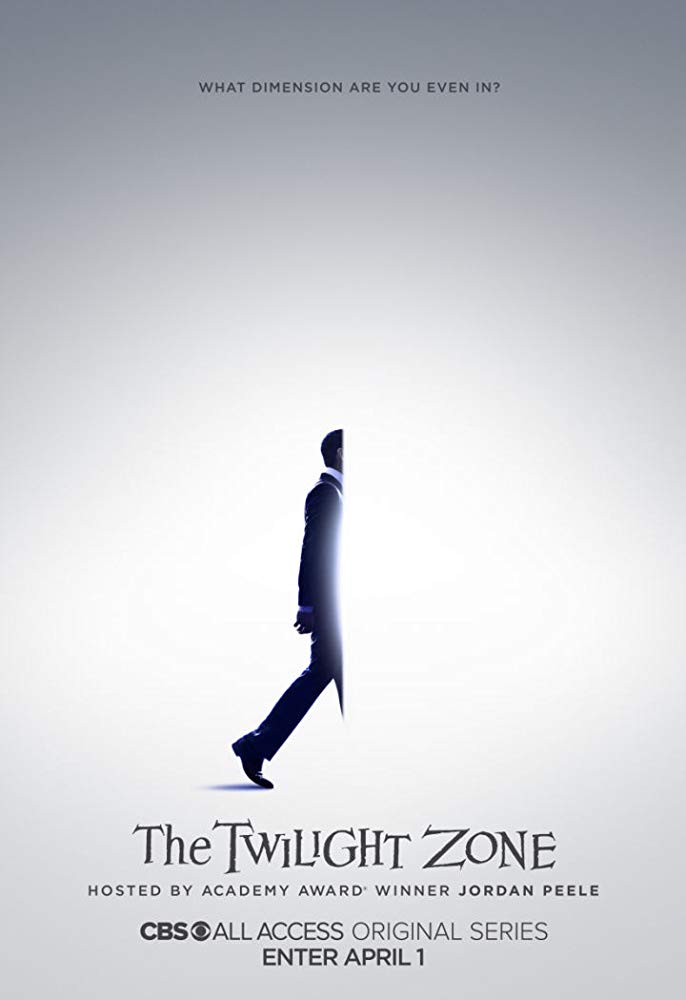“You are now traveling to a dimension of imagination, you’ve just crossed over to The Twilight Zone.”
The iconic line that viewers first heard in 1959 from writing genius Rod Serling, is heard again, this time with an introductory sequence in color. Goosebumps cover your forearms as you are transported back to a time of nostalgic satisfaction…
And just like that, it’s gone.
These were my feelings as I watched Jordan Peele’s reboot of “The Twilight Zone” on CBS All Access.
What showed such promise, quickly turned to such disappointment as Peele and other series writers Simon Kinberg and Marco Ramirez, tried way too hard at recreating Serling’s world of pure psychotic pleasure.
The first two episodes, which were released on April 1, with another episode releasing every Thursday through May 30, show absolutely no promise that we could have a hit to watch for years to come – or even a year at that.
The third reboot of “The Twilight Zone,” which was originally rebooted in 1985 and then again in 2002, feels as though it will share the same fate as the 2002 series that was hosted by Forest Whitaker. And that would be to get cancelled after its first and only season.
Filled with guest stars across the first two episodes such as Kumail Nanjiani, Tracy Morgan and Adam Scott, with the promise of more to come in the later season, viewers can’t be distracted from the main issue that the series has.
It’s just too predictable to watch.
The first episode, titled “The Comedian,” stars Academy Award-nominated writer Kumail Nanjiani as a struggling stand-up comic who battles to gain a few laughs from audiences each night with his political routine about the second amendment.
After running into famed comedian J.C. Wheeler (Morgan), Nanjiani’s character is told that he needs to give himself to the audience through his own life stories – by doing this, he will get the laughs he wants.
Need I say more?
Within the first five minutes of the episode, you know the fate of Nanjini’s character. But, out of respect for Serling’s original series that I am a major fan of, I sat through the next 50 minutes, painfully, only to ask myself afterward: Why?
I found myself bored. From the writing, to the acting, to the story – everything was just tired. It seemed that Peele’s series is trying to be Serling’s original so badly that it’s absolutely nothing like it at all.
The sense of wonder, illusion, thought-provoking storytelling is just not there and the famed guest stars who add any sort of draw to the series come across as nothing more than corny.
Morgan, who is dressed with a shocking resemblance to Denzel Washington’s character from “Fences,” sits with a toothpick shoved so far into the right side of his cheek you would think its playing billiards with his uvula. His character brought absolutely nothing to the plot of the episode other than the fact that he instills this sense of power into the struggling comic.
And Nanjini, who is actually a stand-up comedian in real life, wasn’t even funny. You would think that an episode about a stand-up comedian could include some humorous lines from the real-life comic, right?
The series’ second episode, titled “Nightmare at 30,000 Feet,” based off of the classic 1963 episode “Nightmare at 20,000 Feet,” starred Adam Scott in place of William Shatner’s character from almost 60 years ago.
It goes without saying that Scott is in no way, shape or form William Shatner, but as a fan of Scott’s time on television, I didn’t mind seeing him portray the mentally disturbed airplane passenger.
This episode, which was better than the first in the sense of plot, did nothing to change the predictability.
No, the episode didn’t follow the original story from 1964. Thankfully, it had its own original plot where Scott’s character finds an older MP3 player in the back pocket of the seat in front of him.
After finding headphones with an aux cable to insert into the device (never mind that he was going to use his AirPods at an altitude where you can’t get a Bluetooth signal), Scott finds himself listening to a podcast about the disappearance of his own flight.
With nods to the original 1963 episode throughout this one, we see again that Peele’s show is trying to pay homage to the original series and give viewers a sense of relation.
But I think it goes without saying, or maybe it does need to be said to help Peele realize, but Jordan Peele is not Rod Serling.
When it all comes down to it, Peele is trying to be this icon and he is not. He is trying to take Serling’s writing, his ideas and Peele has even taken on Serling’s role as The Narrator. He tries to copy his mannerisms even, and it’s just plain sad.
The sooner Peele accepts the fact that he is not Rod Serling the better, and maybe this reboot of “The Twilight Zone” will still be salvageable.
Ken Downey Jr. is the Features Editor for Time OFF and Packet Publications. This is a part of his series of weekly columns focusing on arts and entertainment. He can be contacted at [email protected].

